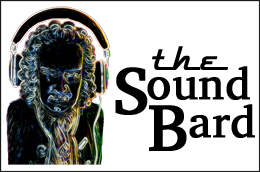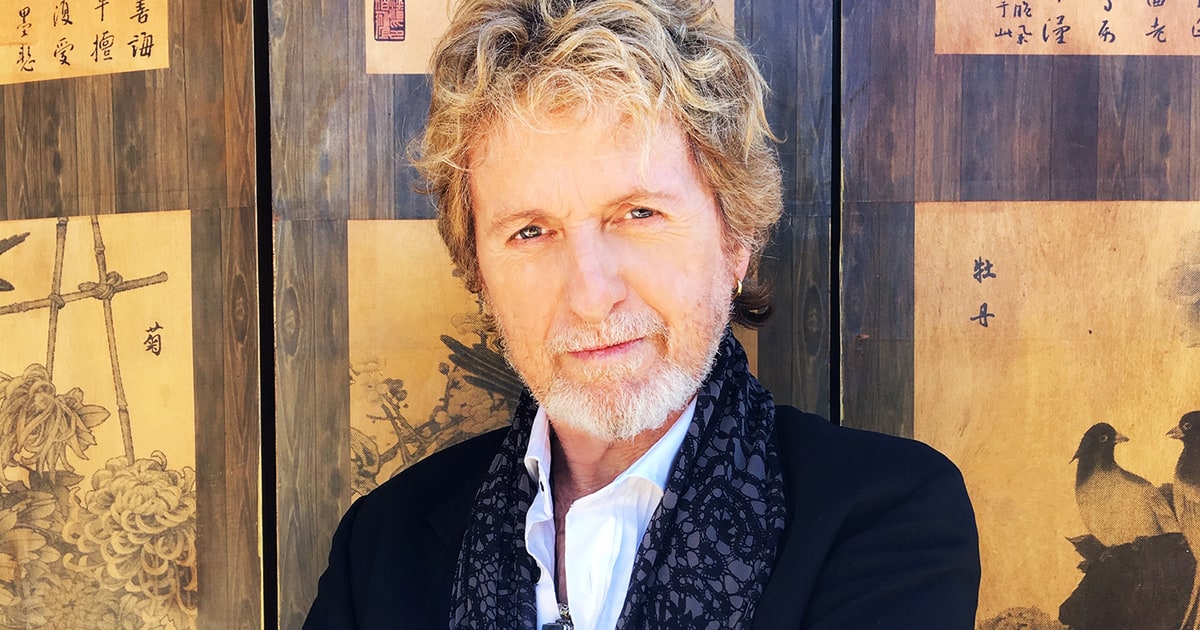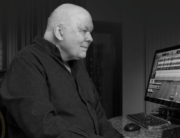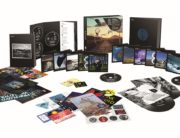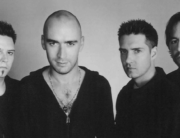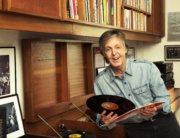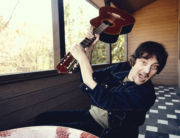BY MIKE METTLER – JULY 28, 2016
When last we checked in with Jon Anderson, he told us about his ongoing love and appreciation for hi-res audio and surround sound. Never one for sitting still, Anderson continues to find creative challenges at every turn, having just released a fine collaboration with guitarist Roine Stolt of The Flower Kings that’s oh-so-aptly called Invention of Knowledge (InsideOut). He’s also recently announced a fall U.S. tour with two former Yes bandmates, guitarist/vocalist Trevor Rabin and keyboardist Rick Wakeman, under the ARW umbrella (as in, of course, Anderson, Rabin and Wakeman).
Of ARW’s live goals, Anderson tells me, “We’ll do Yes songs in a more poetic way rather than just reproducing them and trying to be like a ‘Yes-perfect’ recording. It will be a development, because that’s how we feel about music — it’s ever-evolving.”
New ARW music is also in the offing, and all three members confirmed to me personally that they’d like it to be mixed in hi-res and in 5.1 — something Rabin has extensive experience with, having scored over 50 surround-oriented soundtracks for film and TV over the past two decades.
In a SoundBard exclusive, Anderson and I discuss the sonics of Invention of Knowledge, how surround sound is an important part of everyday life, and his never-ending drive for seeking out new collaborations.
 Mike Mettler: “Evolution” was one of the words I wrote down in my notes as I was listening to the multiple parts of the title track to Invention of Knowledge, as well as those for “Knowing” and “Everybody Heals.” That seems to be the theme of what you’ve done with this record.
Mike Mettler: “Evolution” was one of the words I wrote down in my notes as I was listening to the multiple parts of the title track to Invention of Knowledge, as well as those for “Knowing” and “Everybody Heals.” That seems to be the theme of what you’ve done with this record.
Jon Anderson: Yeah! It was a wonderful experience, because I would send Roine some songs, and he would design the music around the songs, and then he would add some more music, which would give me a chance to try out some other work with his music. So we started this wonderful balance and musical dance, and it’s come out really well. People ask me what the album is like, and I say it is timeless. You get into that space.
I’ve actually got the CD in my car. I go out driving and shopping, and things like that, and I’ll just put on the album. I’m not one for listening to my albums very much, but this one, I just put it on, and it’s a really wonderful — it’s just there. It’s a very, very natural event for me.
Mettler: Was there any thought of doing a surround mix for this release?
Anderson: One of the things we talked about for next spring or summer would be to do a concert in the round, and record it in the round. I don’t know if it’s going to happen, but it’s what we’d like to do. We’ll see what comes.
Mettler: I totally vote for that. Your music, to me, has always been meant to be heard in a 360-degree dimension, and stereo or mono doesn’t really seem to give us all of what’s there.
Anderson: It’s an ongoing game. I always work in surround when I’m working in my studio. That’s how I like to work.
Mettler: We’ve talked a little but about surround before when it comes to Yes music. It’s such a great experience to have, isn’t it?
Anderson: Well, we live in a surround world. It isn’t in stereo; just music is. But the best music, of course, is nature — when you hear the birds singing and the melodies that come out in the world. The nature world is just surrounding you constantly. I’ve even recorded the sound of some cities. Maybe it was crazy at the time, but I’ve listened to the sound of a city in surround. A city is an incredible cacophony of music — especially a big metropolis like New York, Paris, or London. You record them, and then listen back to them in surround. If you close your eyes, you feel like you’re in the middle of the city. And that’s what music is all about: creating surround sound.
Mettler: I say that to people all of the time, actually. We live in a 360-degree world. I’m in New York a lot myself, and anything you hear around you and behind you just adds to the overall ambience of the location.
Anderson: Very true!
Mettler: Would you say that environment influences the way you write certain things? It’s a totally different feel if you’re in, say, Nashville as opposed to Los Angeles.
Anderson: Of course! The energy that surrounds you is always the energy that’s supposed to be around you. As an artist, you hear things in your own way, and then you reproduce them. That’s how you make music. The tones come to you through this energy that surrounds you — and off you go, writing songs again, and all is good.
Mettler: It’s literally the “Invention of Knowledge” — or as the line goes in the song, “everyone has a story of greater revelation.”
Anderson: Everyone is magical. It’s just a question of each person finding out their true realization. That’s what life is all about. Everybody has a story — and you never know who you are meeting.
Mettler: You’re also the collaboration king. You’re always open to working with different people from all different aspects and areas of the world of music. Where do you think that comes from, Jon? Is it something you’ve always had, even from when you were growing up — that you always wanted to work with a wide variety of people?
Anderson: Mmmm — I suppose it’s the adventure. You get to a certain point where you’re struggling to become a professional musician. You’re struggling to get things going, and you work with anybody you can get yourself to work with, just trying to make it happen.
 And then all of a sudden, you’re in a group, like I was with Yes. The second thing I ever did after the first Yes album [1968’s Yes], was with King Crimson [for 1970’s Lizard, KC’s third album, released on December 11, 1970]. I’d actually seen them perform their first album [1969’s In the Court of the Crimson King] in a club. I just happened to meet with Greg Lake, and we connected. [Lake, the bassist/vocalist on the first two King Crimson albums, was succeeded by Gordon Haskell on Lizard.]
And then all of a sudden, you’re in a group, like I was with Yes. The second thing I ever did after the first Yes album [1968’s Yes], was with King Crimson [for 1970’s Lizard, KC’s third album, released on December 11, 1970]. I’d actually seen them perform their first album [1969’s In the Court of the Crimson King] in a club. I just happened to meet with Greg Lake, and we connected. [Lake, the bassist/vocalist on the first two King Crimson albums, was succeeded by Gordon Haskell on Lizard.]
And the next thing was, Robert Fripp called me up and said, “We’re making a third album. Would you sing on it?” and I said, “Please!” I didn’t think twice. You get into that situation where people ask, and I always say, “Of course! No problem!” [Anderson’s vocals appear on “Prince Rupert Awakens,” notated as Part “a” of the title track to Lizard, which was recorded at Wessex Sound Studios in Highbury New Park, London.]
Mettler: You’ve always been good about that. And you’ve worked with a good friend of mine too — Lawrence Gowan.
Anderson: I was in the studio with a friend in L.A., and he was next door, in the next studio [at Producers Studios]. I just wandered in to say hi. I’d heard the music — and it was really good music! He said, “Would you sing on it?” And I said, “Yes!” We put the mike up, and I sang on it. [Anderson sang backing vocals on “Moonlight Desires,” from Gowan’s 1987 album, Great Dirty World, produced by David Tickle.]
And I carried on in my world, and a month later, he called me up and said, “We’re going to do a video — can you meet me in Mexico?” And I said, “Yeah! OK! Great!” (laughs) [The “Moonlight Desires” video was shot in Teotihuacan, which is about 30 miles north of Mexico City. You can see Anderson a number of times in classic garb in the following videoclip.]
And that’s what happens, you know? Life is full of different and exciting experiences, and I’m very open to these opportunities.
Mettler: How many live shows have you done, do you know? It has to be well past a couple thousand live performances at this point.
Anderson: So many shows; it’s just incredible. Who knows? (chuckles)
Mettler: Unlike a lot of people from when you started, your voice today is very strong. Is there a regimen you follow to keep it in shape? Obviously, you had to go through a lot with it [Anderson overcame a severe asthma attack and acute respiratory failure in 2008], but you came through better than ever, I think.
Anderson: It gets better every day. I just love singing. I was singing on a project just yesterday — doing vocalizing ideas — and that stretches the voice every day. I’m also writing a story at the moment, so I’m busy thinking music at the same time. Every day I wake up, I’m thinking music.
And I’m in my studio now. I’m working on some of the songs with Trevor, mapping out the lyrics and thinking about how it’s going to sound.
And I have another project with some local people, working on some Middle Eastern music. I think there’s about 18 of them, this choir of voices, which I love. They’re from a local college. They do this project every year. I’d been listening to them last week, thinking, “My gosh — this is really interesting!” There’s a company here looking for a project, and I’ve got the music here, so that’s going to happen when I go through it in a couple of weeks’ time. It will probably go into production next summer. It will be pretty interesting.
 Mettler: Wow, that’s fantastic. Would that be the advice you give to anybody — to follow their muse, so to speak, and just create?
Mettler: Wow, that’s fantastic. Would that be the advice you give to anybody — to follow their muse, so to speak, and just create?
Anderson: Yeah — open up to what is happening around you, and enjoy what’s coming to you. Don’t go crazy fighting for things to happen. Be cool, be calm, and let it come to you. And then all the great things will come to you.
Some of the best things you ever do as an artist is when you do it spontaneous. Whether you call it jazz or “chance” music — it’s the best music, because you haven’t thought about it too much; you haven’t overthought it. And that’s the great music.
